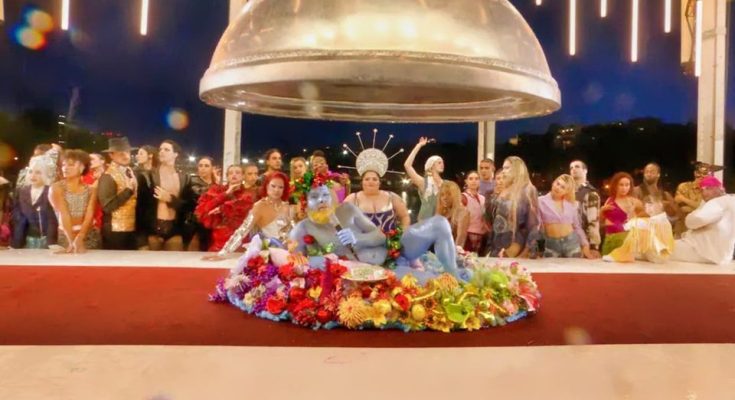One performance from the opening ceremony of the Paris Olympics produced a wave of emotions throughout the world.
The four-hour ceremony kicked off the start of the Summer Games.
During the most talked about performance, drag queens and dancers lined a long table in an image that some believed resembled Leonardo da Vinci’s “The Last Supper” portrait of Jesus Christ and his 12 apostles.
Many blasted it as mocking Christianity, but one LGBTQ group leader had other issues with it.
French LGBTQ leader James Leperlier believes the Paris Olympics opening ceremony did not go far enough.
“We know in the LGBTQ community in France, we are far from what the ceremony showed. There’s much progress to do in society regarding transgender people. It’s terrible that to legally change their identity, they are forced to be on trial,” Inter-LGBT president James Leperlier said per Reuters.
“If you saw the opening ceremony last night you’d think it was like that normally, but it’s not. France tried to show what it should be and not what it is.”
Paris Olympics Ceremony’s Artistic Director Speaks Out Amid Major Backlash
In one scene from the opening ceremony at the Olympics, a dinner table shows a mostly nude French entertainer lying on the table as dancers and drag queens strike poses along the long table.
The official X account for the Olympic Games shared photos of the moment and referenced Dionysus, the Greek god of wine-making, fruitfulness, and ecstasy.
However, some called the imagery a “mockery” and “insulting to Christian people.”
When asked about the backlash, the ceremony’s artistic director, Thomas Jolly, said at a press conference that he did not intend “to be subversive,” “mock” or “shock.”
“We wanted to include everyone, as simple as that,” he said. “In France, we have freedom of creation, artistic freedom. We are lucky in France to live in a free country. I didn’t have any specific messages that I wanted to deliver. In France, we are republic, we have the right to love whom we want, we have the right not to be worshippers, we have a lot of rights in France, and this is what I wanted to convey.”



